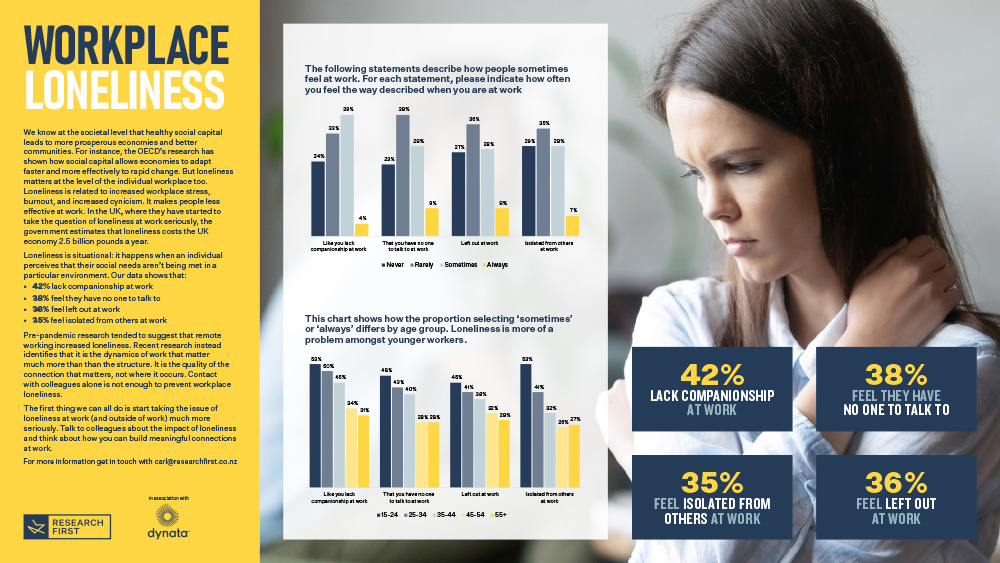Workplace loneliness
We know at the societal level that healthy social capital leads to more prosperous economies and better communities. For instance, the OECD’s research has shown how social capital allows economies to adapt faster and more effectively to rapid change. But loneliness matters at the level of the individual workplace too. Loneliness is related to increased workplace stress, burnout, and increased cynicism. It makes people less effective at work. In the UK, where they have started to take the question of loneliness at work seriously, the government estimates that loneliness costs the UK economy 2.5 billion pounds a year.
Loneliness is situational: it happens when an individual perceives that their social needs aren’t being met in a particular environment. Our data shows that:
- 42% lack companionship at work
- 38% feel they have no one to talk to
- 36% feel left out at work
- 35% feel isolated from others at work
Pre-pandemic research tended to suggest that remote working increased loneliness. Recent research instead identifies that it is the dynamics of work that matter much more than than the structure. It is the quality of the connection that matters, not where it occurs. Contact with colleagues alone is not enough to prevent workplace loneliness.
The first thing we can all do is start taking the issue of loneliness at work (and outside of work) much more seriously. Talk to colleagues about the impact of loneliness and think about how you can build meaningful connections at work.
For more information get in touch with carl@researchfirst.co.nz



